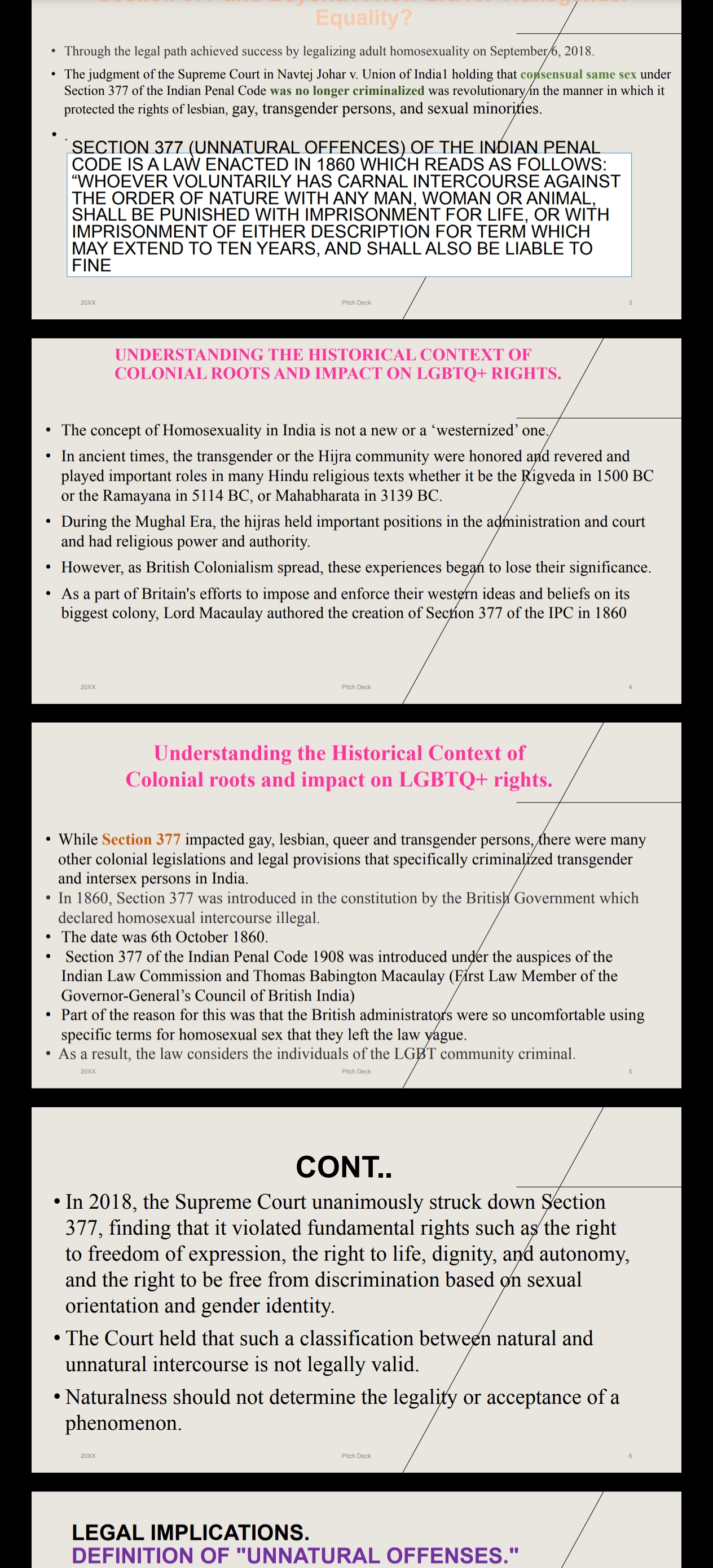What are the legal implications of Section 377 of the Indian Penal Code on LGBTQ+ rights?

Understand the Problem
The text provides an overview of the historical context and legal implications concerning LGBTQ+ rights in India, particularly in relation to Section 377 of the Indian Penal Code and its impact on sexual minorities. It discusses the decriminalization of consensual homosexual acts and references significant legal and historical milestones.
Answer
Section 377 decriminalized in 2018, boosting LGBTQ+ rights.
The Supreme Court of India decriminalized consensual same-sex relations by striking down Section 377 in 2018. It was deemed unconstitutional as it violated fundamental rights, including privacy and equality, marking a significant step for LGBTQ+ rights in India.
Answer for screen readers
The Supreme Court of India decriminalized consensual same-sex relations by striking down Section 377 in 2018. It was deemed unconstitutional as it violated fundamental rights, including privacy and equality, marking a significant step for LGBTQ+ rights in India.
More Information
The 2018 Supreme Court ruling on Section 377 recognized the importance of individual dignity, personal privacy, and equality before the law. This decision was celebrated globally and has encouraged further advocacy for LGBTQ+ rights in India.
Tips
A common mistake is assuming all issues related to LGBTQ+ rights were resolved with the decriminalization. While significant, other challenges like social stigma and discrimination remain.
Sources
- Section 377 - Wikipedia - en.wikipedia.org
- LGBTQ+ Rights and Section 377 of Indian Penal Code, 1860 - juriscentre.com
AI-generated content may contain errors. Please verify critical information